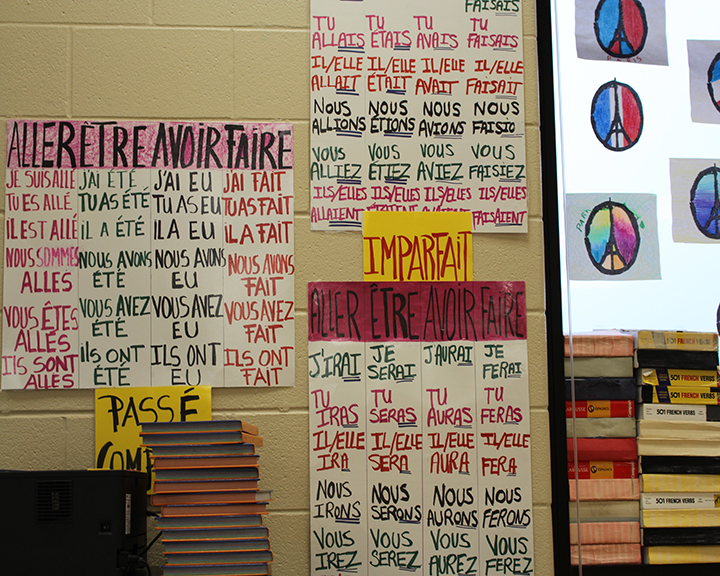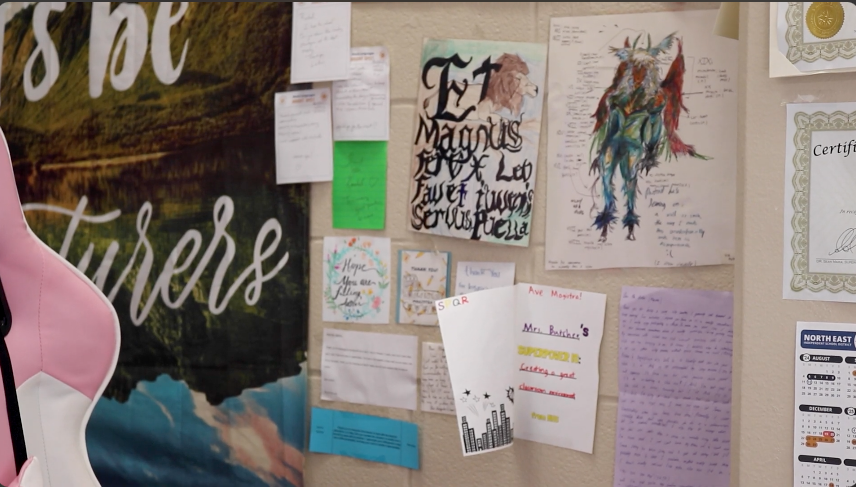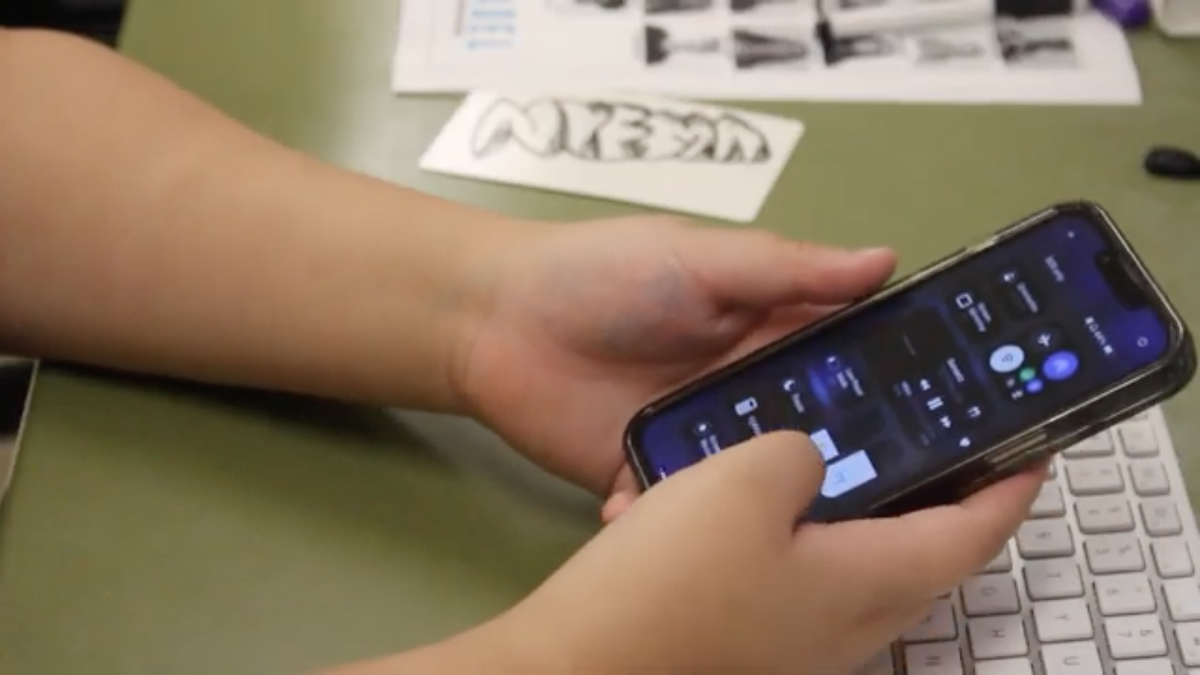by Aleeha Shah | staff writer
All around the world, there are different cultures that speak different languages. When these people move to other places, or countries, they often take their languages with them. For example, freshman Japhet Figueroa, who speaks Spanish, seems to be one of these people.
“I’ve translated for a lot of people, so I guess it’s helpful. It’s like for me, I can connect to two different people and places, so for me it affected me well,” Figueroa said.
Similarly, knowing the German language also allowed German teacher Katherine Wilhelm to connect with many people throughout her life.
“Knowing German helped me understand a whole people group,” Wilhelm said. “It helped me understand that when people live in other countries, it is essential to know a minimum of two or three languages, so that you can understand the way people live, and understand their culture.”
Although knowing multiple languages can sometimes be a good thing, moving to America from Pakistan can be a hard transition according to junior Kinza Saleem, who is fluent in both Urdu and Punjabi.
“Speaking multiple languages affected me when I was younger. I didn’t know a lot of English, so I had to be in this program called ESL; English [as a] Second Language,” Saleem said. “It was really hard for me because I didn’t know English, and I had to be in an American English school, and it took me eight grades for me to get out of the program.”

According to NEISD, the ESL, or English as a Second Language, classes are designed to, ‘help students learn and improve their English skills through speaking, reading, and writing.’ The main goal of these classes is to help students learn English, so they have less trouble in a foreign school. Although students who don’t speak English are taught, learning a language other than English can be just as beneficial.
“It opens up your mind, and you become more knowledgeable about other cultures,” French and Spanish teacher Dominique Dantaux said.
In addition to further developing your understanding of different cultures, knowing a second or third language can even create opportunities that may be beneficial.
“Yes, [knowing another language] is really important, because then you can travel, or you can study. It makes you more special because you know two languages,” sophomore and Vietnamese speaker Khanh Ho said.
Not only will knowing multiple languages provide you with the opportunity to travel the world and be able to interact with the people that live in that particular area, but it may also help you locally.
“if you’re working somewhere, and someone who only speaks spanish, or someone who only speaks french comes into the store, then you can help them out, and maybe get paid more,” junior Regina Medina said.
Some people believe that learning multiple languages is beneficial and they should continue to enrich themselves.
“Everyone can learn more than their first language. They can study another language. Everyone can do it, but at this time not all people know that. But I think all people can do it,” Ho said.
Others believe that since most people speak English, it is sometimes assumed that it is also spoken in other countries, when in reality that may not always be the case.
“We tend to rely on English; when you go to a country you think, ‘Oh people know a little bit of English,’ but it’s not true. A lot of countries don’t know a word of English,” Dantaux said. “I think English has become the international language. Everybody knows a little bit of it, but not enough French, [and] not enough Spanish that’s for sure.”
More specifically, Wilhelm went on to say how she feels as though some people may not know enough languages, and how learning a new language while still young may be the best time to learn.
“As children we are more open to learning, and don’t have our prejudices against other languages,” Wilhelm said. “And I also think that we learn quicker as a child.”
In addition, people should learn to speak different languages as well since America is a melting pot for all different types of cultures and people, adds Wilhelm.
“I believe, being an American citizen, I believe Americans do not know enough languages. I think people that move into our country that have lived in other countries know more than we do as far as languages like Indians, and people from Pakistan, and different Latin American countries,” Wilhelm said.
Sometimes when these people move here from other foreign countries, they don’t hold on to their unique cultures, and sometimes they don’t even hold onto the language.
“I think it’s a real tragedy that they sometimes lose that when they move here, and they have their own families, because they don’t pass it on. I think we need to learn more languages, and we need to, as Americans, start at a very young age,” Wilhelm said.








